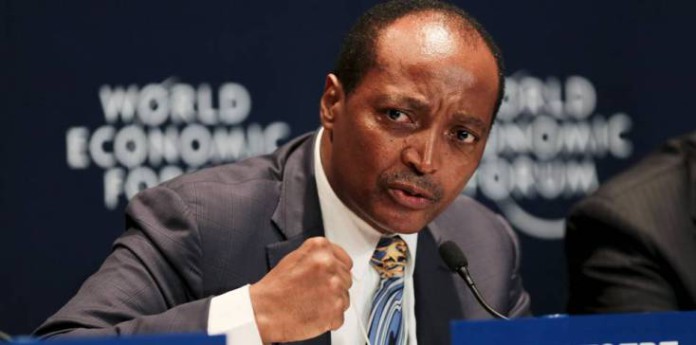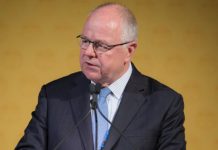
AFRICAN Rainbow Minerals (ARM) may be considering getting involved with associate Harmony Gold over the development of the Wafi-Golpu copper/gold project in Papua New Guinea (PNG) which is a joint venture between Harmony and Newcrest Mining.
That possibility was raised thanks to ARM chairman Patrice Motsepe’s rambling reply to an analyst’s pointed question at today’s presentation held in Johannesburg of ARM’s interim results for the six months to end-December.
Motsepe tap danced around the issue in his lengthy answer during which he – effectively – neither confirmed nor denied the suggestion of a joint venture over Wafi-Golpu.
“A very good question,” Motsepe commented when the question was put to him. He then went into the history of ARM’s relationship with Harmony going back to when ARMGold was merged with Harmony so giving ARM its current 14.3% stake.
Motsepe added: “There are on-going discussions between Harmony and ARM on a number of issues. We continue to be very excited and confident about the future of Harmony.
“The issue relating to copper is that we are looking at opportunities in different parts of the world and, of course, Harmony and ARM have their own on-going discussions in terms of how their partnership could work to the benefit of both parties.
“Very, very important – particularly for us because Harmony has been a critical part of our strategic future. There are opportunities in copper and we are looking at them and the plan is not to make the same mistake we made in Zambia.”
That mistake was the Lubambe mine which ARM finally got rid of in December at a huge loss realising net proceeds of just R492m after spending more than $400m on the development of the mine with partner Vale. Both Motsepe and ARM CEO, Mike Schmidt, have on several occasions stated that the group intended getting into another copper venture despite the setback at Lubambe.
The perennial criticism by analysts of Harmony’s involvement in Wafi-Golpu has been that the gold producer lacks the financial resources to fund its share of what would be a multi-billion dollar development.
LAND EXPROPRIATION
In his opening remarks at the presentation, Motsepe raised the issue of land expropriation without compensation saying that the private sector could not sit “on the sidelines” in relation to the discussions taking place in government over land expropriation.
He pointed out interaction between major private sector companies and the ANC in the 1980’s had played a critical role in establishing the democracy that was eventually set up.
Said Motsepe: “As the business community we have to get involved in the land expropriation debate. We have to express our opinions and get engage with – and influence -government. The land issue is related to other issues such as the mining charter and the perception of South Africa as a globally-competitive destination.”
Motsepe said the issue of providing more land to blacks was critically important, but so was the issue of addressing the concerns of white farmers.
“There are certain things we can say as the private sector which may not be at the forefront of the minds of the politicians. Can you imagine if you had a government that is populist orientated and just plays to what may be popular at any particular time?. That would not be in the interests of the country.”
Asked how he thought the South African government could achieve the seemingly impossible stated aim of “land expropriation without compensation but in such a way that it this did not affect investor confidence”, Motsepe replied: “Very good question and the answer is we will do it”.
He rejected the suggestion that this form of expropriation amounted to “nationalisation” stating: “South Africa will never nationalise”.








